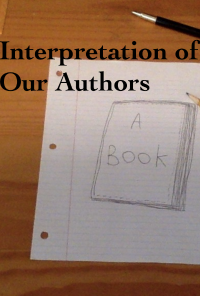Interpreting Chopin
The satires of Twain, however, do not even compare to the criticisms of those of Kate Chopin. Both of these authors had a fair amount to say about their time, to say the least, but if Twain and Chopin were to face each other…I think Twain gets it between the eyes. My experience with Chopin is one of intrigue and comprehension. However, what is most incredible to me is that Chopin, among countless other progressive authors of the time, managed to stand out. Was it simply by luck that she managed to do so, or was her writing really that good? I would like to believe that her writing was really that good, in fact.
“The Story of an Hour” was my first encounter with Chopin. (Admittedly, the first time I read it, I believed that the protagonist really had, in fact, died of joy from seeing her husband. A closer look, however, and I perceived the real interpretation). Chopin is unlike Sinclair very much; although both were progressive writers from around the same time period, Chopin is very sparing of visual imagery in her writing (whereas Sinclair went quite over the top with it).
Then there is “The Awakening.” As I understand it, it was Chopin’s intention that the reader know the ending of the book from its very first pages (it is quite difficult to avoid interpreting the implications and foreshadowing in the earlier pages of the text). For anyone who has not read “The Awakening,” however, and as of yet wishes to read it, do be warned, for I am about to address the ending.
I do not think that there are many books that I have delved deeper into than “The Awakening.” I spent much of the time I was reading it trying to decode the hidden meanings and less-discernible connections encrypted throughout the text. Of course, as was the custom with progressive works of literature around the Victorian Era, the main character does indeed die, by suicide, at the ending. And, as I stated, this was by no means a change in the style of literature at the time (conduct a quick internet search of “female suicides in Victorian literature,” and you will see what I mean).
So, I do not concede that Chopin’s work was very original for its time. However, it is because of that, that I believe that she was a very talented writer, for how else could she have stood out in her time when so many other writers sought to conform to the same styles as she? Chopin was not the inventor of a new form of literature, no, but something far better: the most distinguished and profound wielder of the writing styles of her time. Anyone can invent a style, but few can master them. Chopin managed to master it.
